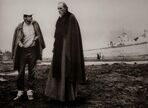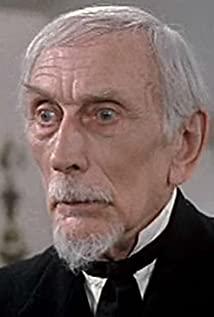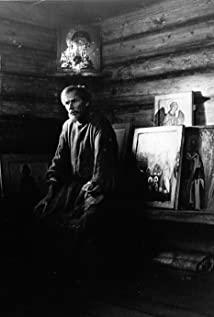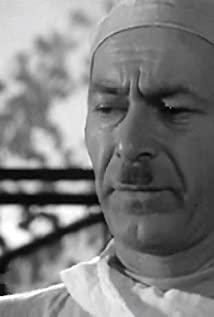on the uniqueness of the author's perspective and the so-called "existence is an event"
Xiwu|Currently studying Soviet-Russian literature at Saitama University in Japan
(Xiao Teng: The guest speaks in simple language and is very teachable. There is an interesting interjection at the end of the article, If you don't watch it, you're not a person.)
In this salon, we chose Tarkovsky's "Andrei Rublev" for the screening, which is recognized as Tarkovsky's best work. Tarkovsky's films are often called "incomprehensible" and "unintelligible". I would like to share this film with you from the perspective of the uniqueness of the author's perspective and the so-called "existence is an event" in Soviet Russian literature.
I would like to share with you a Soviet-era literary theorist - Bakhtin. Bakhtin was a strange person who was buried for a lifetime, and was later excavated by the French and became popular in Europe. His theories have influenced countless schools of theory and philosophy that are now well known. Personally, I believe that to understand the artistic works of Soviet Russia, one can find a representative cultural idea of the Soviet era in Bakhtin's research.
Russian literature has its own theoretical formation and maturity. It is generally believed that there was no literature in Russia before the nineteenth century, with the exception of some epics such as Igor's Expeditions. Therefore, Russian literature can be said to be the originator of Pushkin, and the later famous "realism" technique was written by a Ukrainian-born writer named Gogol, who described the trivial life of citizens in St. Petersburg. created by the record. So this faction was originally called the Petersburg faction. The main members of this faction are known to us, such as Pushkin, Lermontov, Gogol, Dostoevsky, Turgenev and Lev Thor, who lived in the city for only a small amount of time. stein. Among them, Turgenev had a high international reputation at that time because he spent a long part of his life abroad. His funeral was also treated as a state funeral in Russia.
Let’s briefly talk about the beginnings of Russian literary theory. It cannot be said that it is completely equivalent to literary criticism or literary criticism, because as someone pointed out before, Russian literary criticism has already existed. And endow literature with a "scientific" spirit to study and investigate, and the established "Poetry Language Research Group" (OPOYAZ) is the beginning of this literary theory trend. This literary theory research mainly focuses on two aspects, one is the relationship between the sound of words and its meaning, and you may doubt whether this theory can explain literary phenomena. In fact, not only us modern people, but even the members who participated in this organization at that time also split into multiple groups in the later period. And Shklovsky, one of the initiators (which can basically be understood as the main initiator), revised the center of this debate, believing that the focus of the discussion should be on "content" rather than "voice" Arguing about life and death. This change was the main focus of Bakhtin's later criticism of the formalist school. Another of their theory is called "defamiliarization", which is also translated as "alienation". This word, which was originally carried forward and in Marx's works, has also undergone a so-called "alienation" and has become the central code name of Russian formalist literary theory.
Bakhtin believes that if the concept of re-assembly and modification of words to achieve different impressions can be simply understood as the so-called alienation, then the so-called alienation may not be the cleverness of the technique, but the author's own internal thinking logic. decided. The early fragmentary manuscripts of his own that we can gather are full of similar arguments against formalism and theories for it.
His early theories can mainly be summarized as the aesthetic photo theory. In this theory he proposes the elusive word in our title - bytiye-sobytiye.
Try imagining a Russian nesting doll on a table. You know that this nesting doll contains at least two smaller deities inside. I say that this nesting doll is not only of Russian culture, but also the main logic of Constructivism, a Russian avant-garde art genre dominated by Bakhtin's early aesthetics.
At least Bakhtin believes that when a person appreciates a painting, he can naturally have his natural "extrinsicity" to the painting. Another position is that the viewer strives to pursue the author's conception and thinking of creating the work according to his own logic, which is a position that narrows the distance between the author and the aesthetician. In this position, we only say "crying," or "beautiful!", "beautiful!", "the geometrical principle of this painting is..., it embodies the Romanesque style of architecture in ancient Rome" and so on of emotion. And the Russians, or at least Bakhtin, added two other options at this point, which are in a sequence relationship. First, when "I" looked at the painting, what I saw was not only the painting, but also the "author". Any author should be a real person, and everyone has real emotions, and this emotion is common. So when I was looking at the painting, I thought of the artist's state when he was creating this painting. He tinkered. In his own studio, the strong light of the setting sun on a certain day affected the painter's "vision". ”, so when color matching, I deepened that color by 8 levels. After it was completed, the author stood in front of it, and when he carefully reviewed it, he found this flaw, so it was still the "I" in the impression, which produced the author's expression with multiple meanings, and he showed some clear meanings staring at the drawing board. I can imagine this, because this person is "I", and "I" in this position also participated in the creation of "author".
And the other position we just talked about is that I continue to take a step back, and sometimes it may take two or three steps. At this time, what we see is the self who was just imagining before the painting. Now this "I" sees What arrived was the imaginary me and the painting just now, and the difference between the two is not big. Now this "I" feels that the contents I imagined just now have all been included in the image of me just now, and this image is the same as the current "I" who is four or five steps away from the canvas when he sees the picture. Aesthetics are integrated. The reason for this is because the existence of the thing just now, its rationality can be considered to be what Bakhtin called "existence is an event".
(Dragon Ball Xiaoteng interrupted the time: From this point of view, our audience participating in the movie screening and watching the movie is also participating in the author's creation. Movies are closely related to our life experience. Are you excited?)
(Guest teacher Xie instructed Xiao Teng to interject: Yes, you are also participating in the author's creation, because when you and the author review his films at the same time, the meaning produced by you is different from the meaning produced by him. .But the film is an independent entity, it contains infinite meaning. This is how Roland Barthes explained it.)
(Guest teacher Xie again instructs Xiao Teng: But if we break the life of the created work, the work will be destroyed by Doubt, I’m sorry I didn’t mention the point of life just now. The meaning of life is our positive understanding of accepting works of art.)
(Xiao Teng thinks: Teacher Xie can really explain the literary theory in a simple way. I regret not coming to this screening. Generation paper!)
Jilin conducts zero points movie salon
Time: 17.4.29 18:00
Film: "Andrei Rublev"
Venue: leaf charm Tea wood
Duration: 180min
Jilin City Beijing Road Lele Snack Eastbound 20 meters gas station Side
fee: prepaid 5 yuan
Registration contact: kkaxibos (search WeChat ID)
View more about Andrei Rublev reviews











